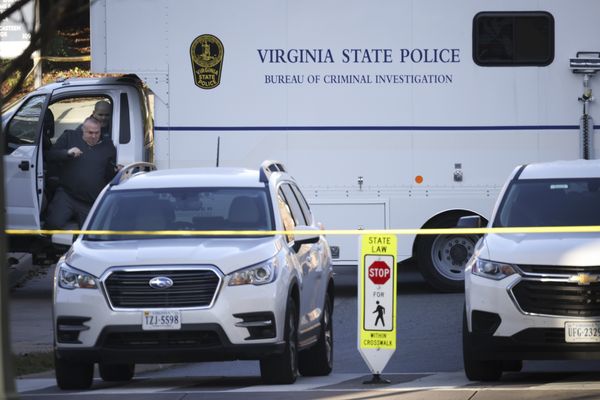
Leaders from the Western Balkans and several European countries are meeting for an annual summit in the Albanian capital Tirana, with few concrete decisions expected amid heightened tensions across the region.
In recent weeks, friction between Belgrade and Pristina has reached the highest level in years, following the killing of a police officer and three Serb gunmen during clashes in the north of Kosovo.
On the agenda at this year's meeting are talks over the greater convergence with the European Union and "supporting ecological and digital transition" in the region.
During Monday's one-day meeting, leaders are also expected to ratify an agreement on the mutual recognition of professional qualifications, and announce the opening of a College of Europe campus in Tirana.
According to Simonida Kacarska, a researcher and director at the European Policy Institute, a think tank based in North Macedonia, "More statements than agreements are expected."
"Last year there was something big on the table – the free mobility agreements. This year we don't expect that much, let's hope for a surprise," she added.
The latest gathering is the 9th summit of the Berlin Process – launched in 2014 by then-German Chancellor Angela Merkel – that aims to promote political dialogue, cooperation and reconciliation between six West Balkan countries: Albania, Bosnia-Herzegovina, Kosovo, North Macedonia, Montenegro and Serbia.
Very happy to launch student registrations for 2024-2025 for the @collegeofeurope in Tirana!
— Ursula von der Leyen (@vonderleyen) October 15, 2023
An important step to prepare the future of Albania and the other Western Balkans partners in the EU, together ↓ https://t.co/DjegDcrn8Q
It is also a space to foster closer ties with the European Union with nine member states including France and Germany involved in the annual summit.
Hungary, the Netherlands, Romania and Spain are also joining this year, at the invitation of Albanian Prime Minister Edi Rama.
Last year's meeting produced several agreements on free movement and residence in the region, as well as the recognition of university and certain professional qualifications.
European Commission President Ursula von der Leyen also announced a one-billion-euro energy support plan.
Regional tensions
For Florian Bieber from the Balkans in Europe Policy Advisory Group, "The Berlin process in the past decade has produced a lot of agreements, but little follow up," said Florian Bieber from the Balkans in Europe Policy Advisory Group.
"In Vienna, in 2015, the foreign ministers of all six countries signed a declaration to not have bilateral disputes stand in the way of the EU path," he added.
But despite pledging to resolve their disagreements, the countries have put no monitoring mechanism in place, said Bieber, meaning that their disputes "continue to bedevil the region."
In the aftermath of recent tensions, Kosovo's government displayed a large arsenal of weapons and equipment and accused the government in Belgrade of backing Serb gunmen in clashes in the volatile north.
Macron's state visit to Albania
Meanwhile, Serbian President Aleksandar Vucic will not attend this year's summit, but instead be on a plane to Beijing to take part in the Belt and Road Forum, where he is due to sign a free trade agreement with China.
Serbia's prime minister Ana Brnabic, however, will be present at the summit in Tirana.
Vucic's absence is seen by some as a clear sign of a lack of good will, which could risk isolating Belgrade internationally.
"We've got plenty to do," said an advisor to French President Emmanuel Macron, "with concerns about both Serbia and Kosovo, as well as Bosnia".
Macron is due to arrive in Tirana on Monday evening for an official state visit and will stay in Albania on Tuesday for bilateral meetings.







